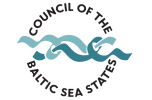On 21 January 2022, the meeting of the Security and Defence Committee of the Baltic Assembly was held. During the meeting parliamentarians, high-level experts and governmental representatives discussed the cooperation of the Baltic states in the EU’s eastern border areas as well as in combatting organised crime.
Security challenges in the EU's eastern border
During the first session of the meeting, the parliamentarians and experts agreed that the cooperation of the Baltic states regarding the protection of the EU’s eastern border has been close and successful. However, President of the Baltic Assembly Jānis Vucāns noted that there is a need for even closer cooperation and moving towards harmonisation of the border systems and decisions of the Baltic states. Chair of the Security and Defence Committee of the Baltic Assembly Atis Lejiņš agreed and added that he is glad to see that during challenging times the Baltic states support each other. He said that together the Baltic states are making a larger impact, convincing other EU Member States about the seriousness of the recent hybrid attacks towards Baltic states and Poland. Researcher at the Centre for East European Policy Studies Mārcis Balodis informed that it is needed to have a common understanding on what is happening in the EU’s eastern border and to call it the way it is – a hybrid operation. Adviser to the Minister of Interior of Latvia Līga Neidere also concluded that the situation is a hybrid attack and it should be treated that way.
Cooperation in combatting organised crime
During the second session of the meeting, it was concluded that organised crime is a key security threat to people all across the EU. The forms of cooperation between the Baltic states include regular meetings of Law Enforcement Agencies, cooperation within INTERPOL, as well as through the SIRENE and EUROPOL mechanisms and more. Senior Analyst and Head of the Office Strategic Analysis at the European Union Agency for Law Enforcement Cooperation (EUROPOL) Alina Arucsandei informed that serious and organized crime undermines the state institutions and the rule of law, hence it is needed to work together. Chair of the Committee Atis Lejiņš strongly urged the Baltic states to focus more on the areas, which have not been given enough priority and are lacking resources, such as sophisticated crime.
Implementation of the recommendations and plans for 2022
During the final part of the session, governmental representatives and high-level experts informed the parliamentarians on the implementation of the recommendations of the Baltic Assembly in 2021 and discussed plans for 2022. The recommendations included plans for effective implementation of border checks during crisis situations, early warning procedure about the closing of the Baltic borders, common standards to improve situational awareness and increase reaction capability, intensifying cross-border cooperation, comprehensive security model of crisis preparedness coordination, implementation of the Agreement on Cooperation in Disaster Response, as well as eliminating gaps regarding civil protection and disaster preparedness. Lastly, the corresponding security threats in the Baltic states were evaluated in order to construct a practical response to increase the resilience of the Baltic society.
© Photos by the Saeima of the Republic of Latvia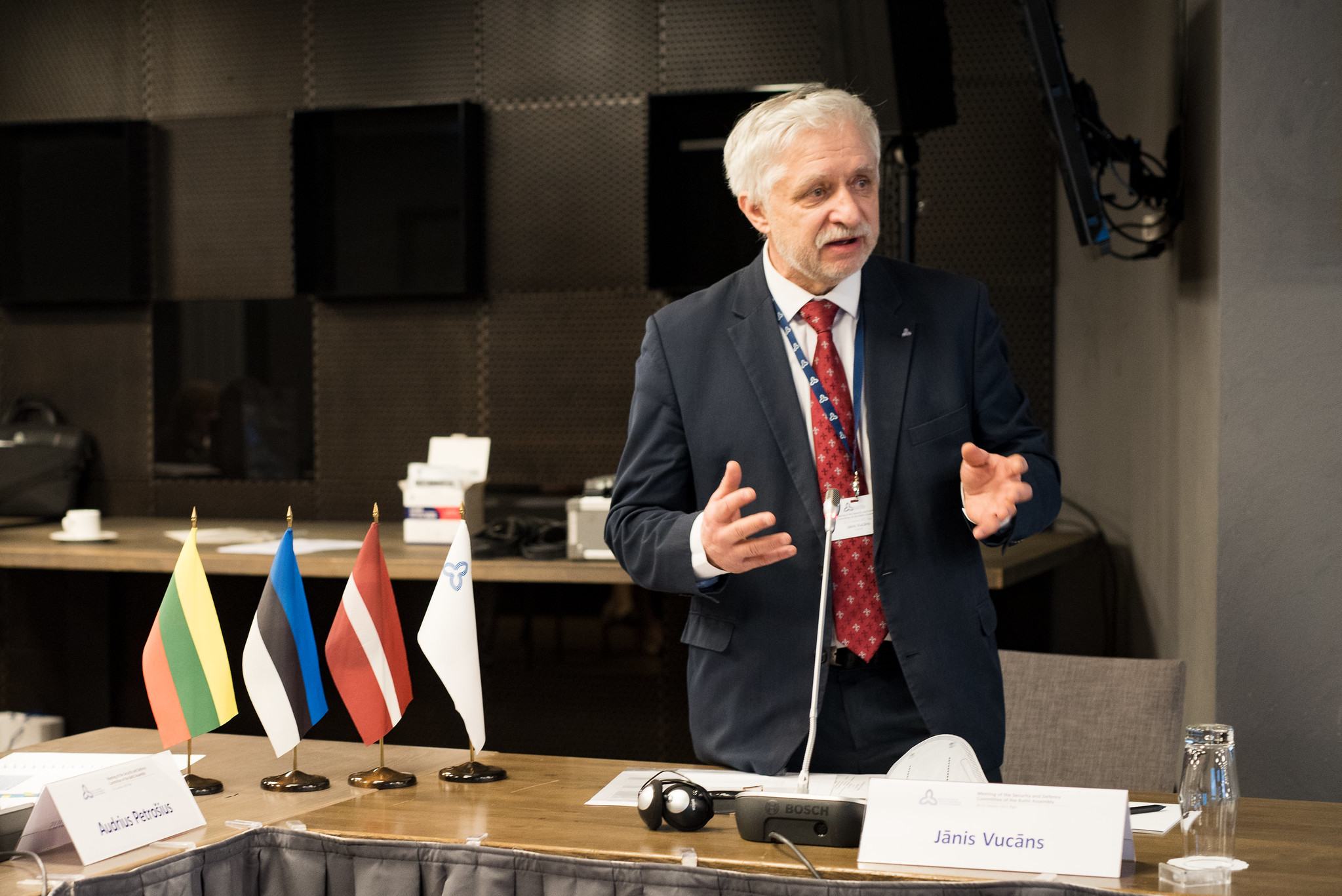
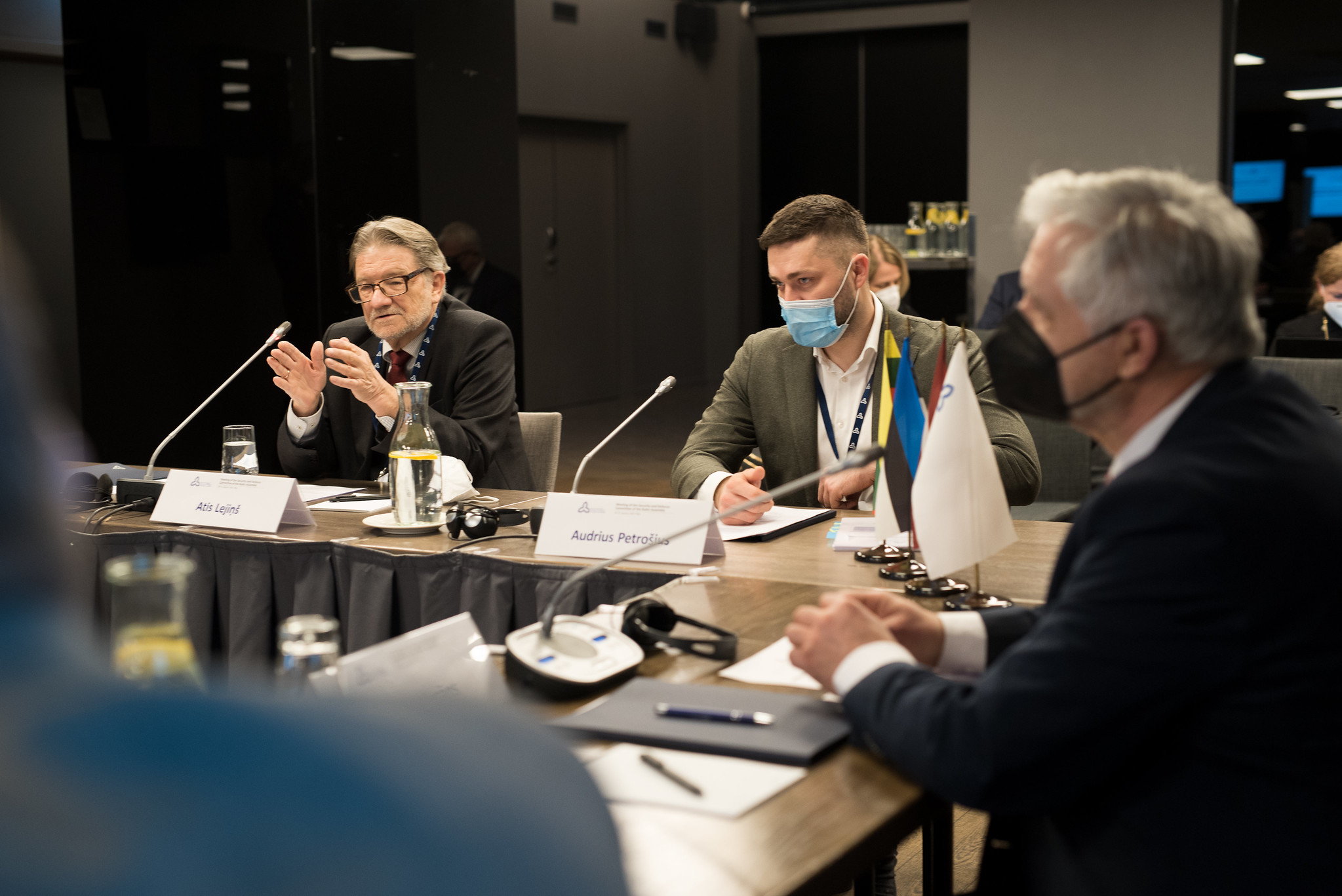
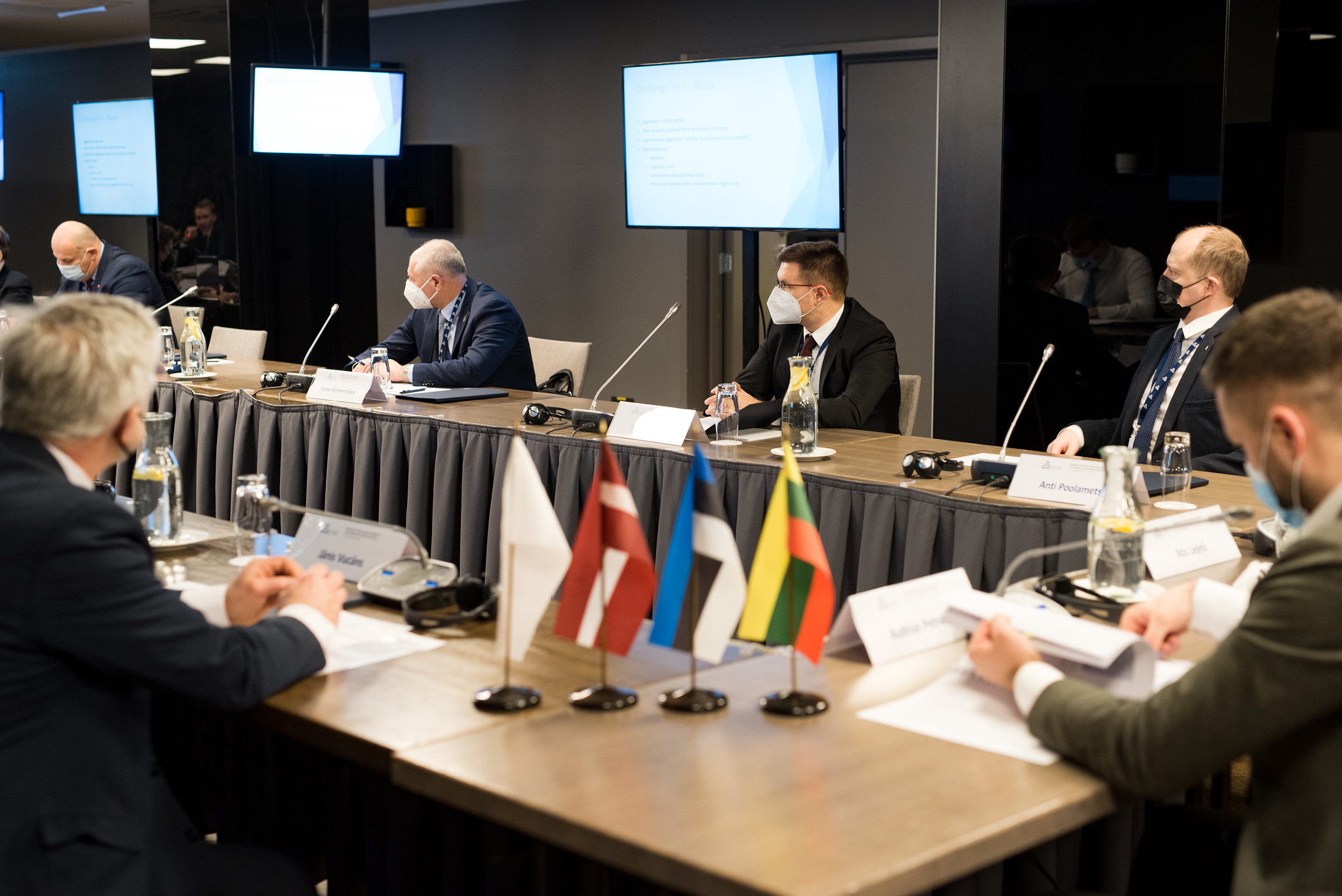
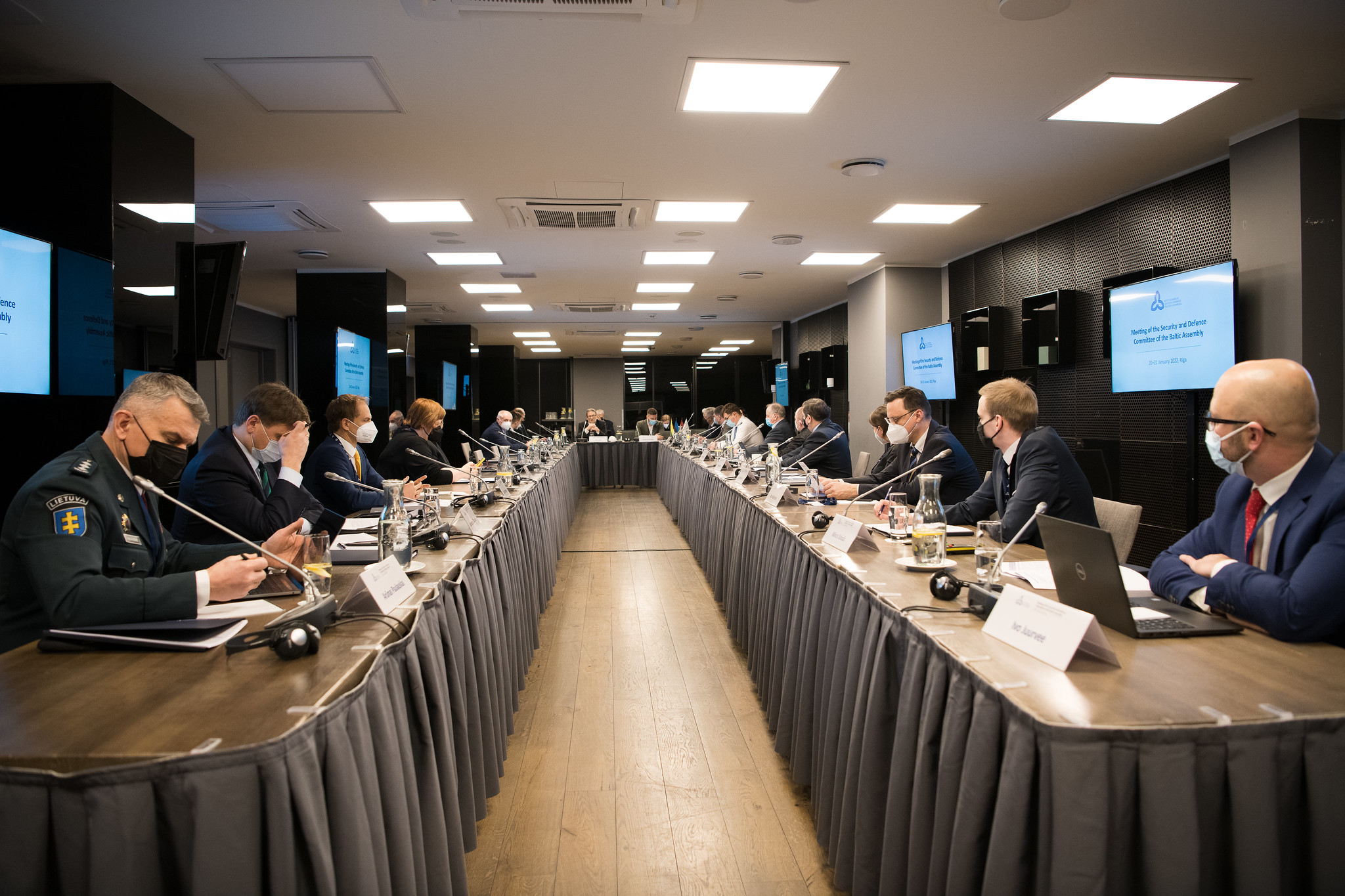
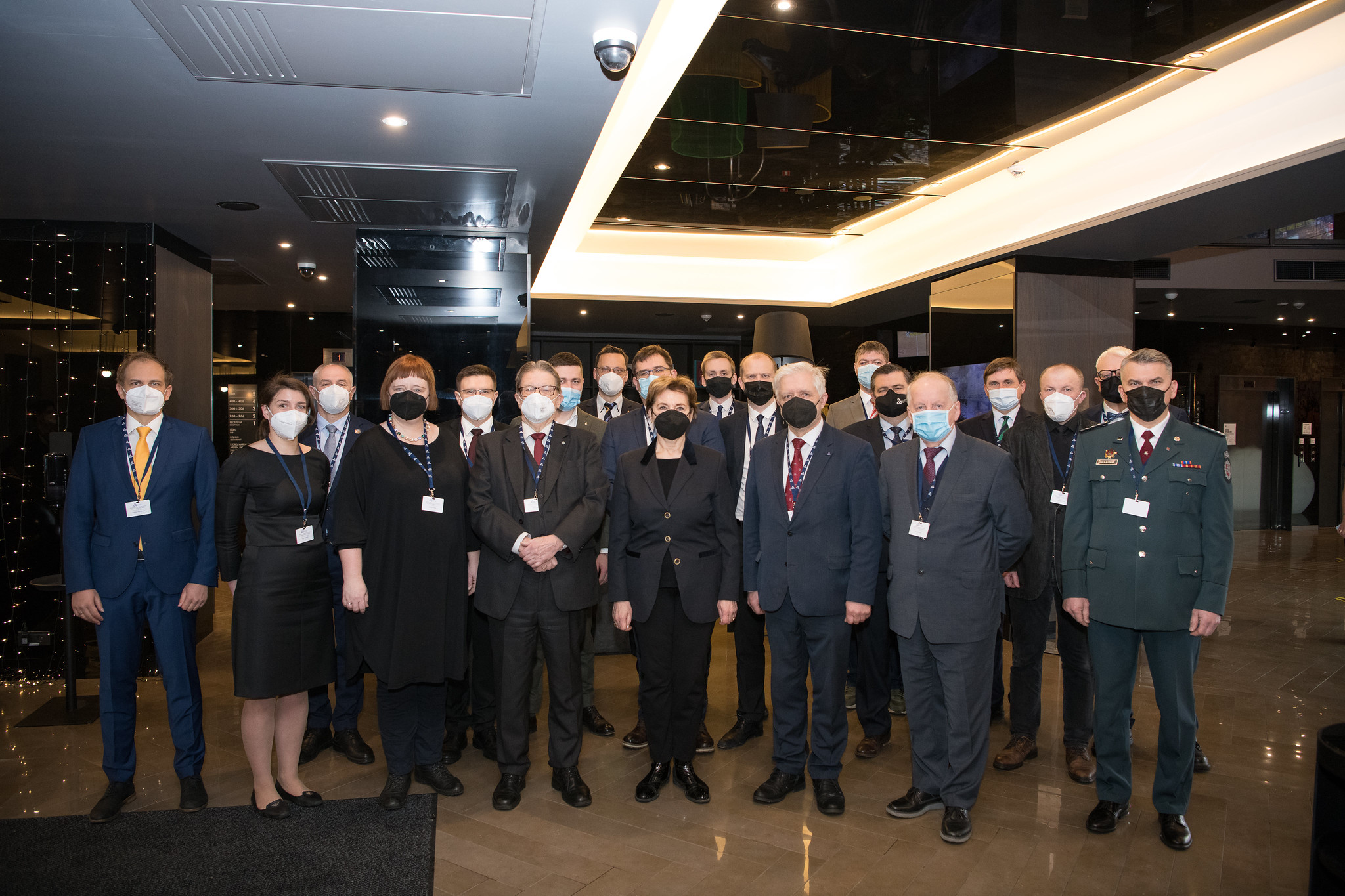
 Print
Print 








